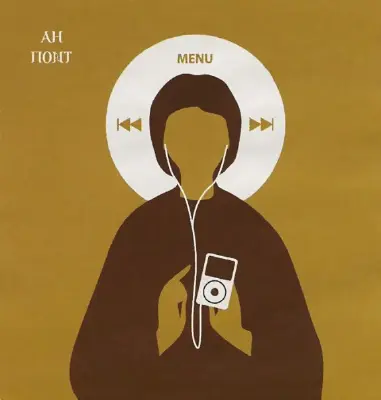
Byzantium & Friends
137 episodes Last Updated: May 29, 25
Conversations with experts in the history of Byzantium and surrounding fields, hosted by Anthony Kaldellis.
Episodes
Winston Berg is a political scientist (University of Chicago) who studies modern American conspiracy theories about politics and the deep state; his dissertation studied the movement known as QAnon. Given our political moment, I thought it would be interesting to discuss with him the different contours and valences that conspiracy theories and deep state notions took in the east Roman polity and in the United States. Check out Winston's recent article 'Origins of the “Deep State” Trope,' Critical Review 35:4 (2023) 281-318.
A conversation with Cliff Ando (University of Chicago) about the revenue models of American research universities and the dangers to advanced research posed by the freezes recently placed on federal funding. While the biggest cuts are to scientific and medical research, the humanities will also be significantly impacted. Cliff has published a number of op-ed articles on what is happening and how universities should respond; see, for example, here.
A conversation with Gavin Kelly (University of Edinburgh) about the corpus of Latin literature from antiquity down to the present, where we discuss the reasons why most scholars focus on the period before 200 AD, why late antiquity is overlooked (despite having some first rate authors), and what can be done about that. Similar issues, we find, emerge from the study of Greek literature too. The conversation is based on Gavin's recent study of 'Periodisations' in R. K. Gibson and C. L. Whitton, eds., The Cambridge Critical Guide to Latin Literature (Cambridge 2024) 97-157.
A conversation with Tina Sessa (The Ohio State University) and Marion Kruse (University of Cincinnati) on the process of peer-review in the humanities: what it's for, how it can be done well, and where it can go awry. The conversation is based on many decades of collective experience of peer-review, on all sides of the process.
A conversation with Adam Morin (University of Ioannina) about categories of taste, the meal structure, and the food and ingredients that east Romans ate. What foods were prized and what looked down upon? How do we know what they ate? What do we know about individual preferences? The conversation is based on Adam's dissertation, Food and Food Culture in the Byzantine Empire, Seventh to Fifteenth Centuries (Queen's University, 2024).
A conversation with Ahmad Al-Jallad (The Ohio State University) about the languages and inscriptions of pre-Islamic Arabia, our main contemporary source for life, death, and worship before the time of the Prophet Muhammad. We talk about field surveys in search of inscriptions and what they tell us about Allah and other Arabian deities in the early centuries of the first millennium. You can find his work on academia.edu (here) and some of his lectures are posted online. The article on which this conversation is based has not yet been published (its provisional title is "Ancient Allah: An Epigraphic Reconstruction"). You can access the Online Corpus of the Inscriptions of Ancient North Arabia (OCIANA) here.
Mar 06, 2025
131. To Miklagarðr and back again: Varangians return from Constantinople, with Sverrir Jakobsson
A conversation with Sverrir Jakobsson (University of Iceland) about the experiences of Northmen -- especially Varangians -- who traveled to Constantinople and the south and returned home with stories, swords, riches, and prestige. The conversation is based on Sverrir's book The Varangians: In God’s Holy Fire (Palgrave 2020). Instead of my usual intro, Sverrir and I discuss some odd parallels in the histories of Greece and Iceland.
Feb 20, 2025
130. A conversation with Johanna Hanink on Greek literature, on publishing in a new field, and on podcasting
A conversation with Johanna Hanink (Brown University) on Greek literature (ancient, modern, and in-between), on publishing outside one's main area of academic expertise, and on podcasting. Johanna is a classics professor who has also written on modern Greek culture and literature, and is the host of the new academic podcast Lesche: Ancient Greece, New Ideas. She recently translated Andreas Karkavitsas' The Archaeologist and Select Sea Stories (Penguin Books 2021). Her personal website is here, where you can find links to her many projects and interests.
A conversation with Sarah Bond (University of Iowa) about organized labor groups in the Roman empire. Ancient occupational groups often formed associations (sometimes called collegia) which are often regarded as little more than dining, cult, and burial societies. In her new book, Strike: Labor Unions, and Resistance in the Roman Empire (Yale University Press 2025), Sarah Bond argues that they sometimes engaged in collective action and bargaining. These continued in existence into late antiquity and possibly beyond. Also, check out Sarah's blog History from Below and her contributions to Hyperallergic.
A conversation with Paul Magdalino (St. Andrews and Koç University) about the literary traditions and genres that Constantinopolitans developed to talk about the origins, history, cosmic importance, and superlative beauty of their city -- the City. The conversation touches on themes in Paul's recent book, Roman Constantinople in Byzantine Perspective: The Memorial and Aesthetic Rediscovery of Constantine's Beautiful City, from Late Antiquity to the Renaissance (Brill 2024). Like the book, our discussion culminates with the majestic oration Byzantios by Theodoros Metochites.